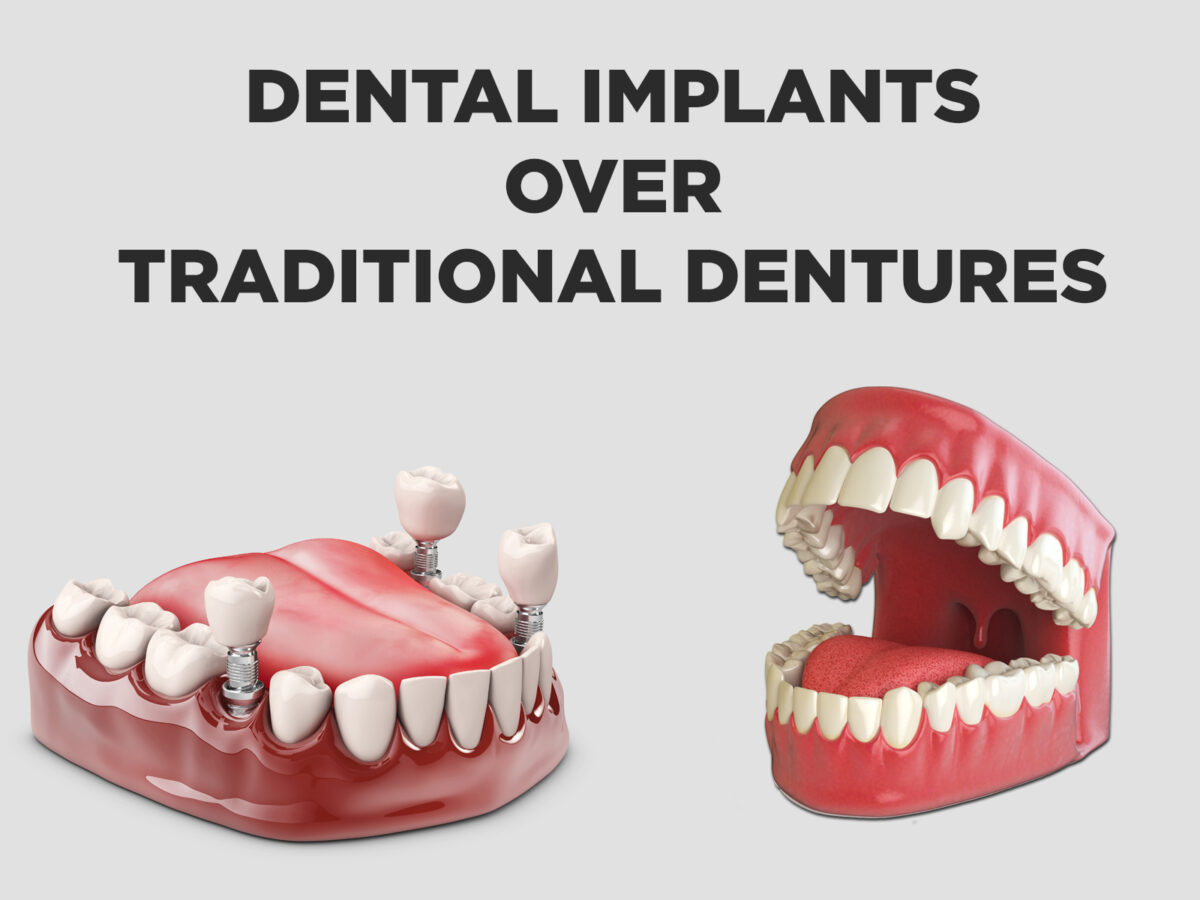Blog
Dental hygiene tips for healthy teeth & gums

The Benefits of Dental Implants Over Traditional Dentures
A dental implant is one of the most effective ways to replace missing teeth and tooth roots. Embedded in the jaw and carefully positioned to support the bone, dental implants surpass traditional dentures in many ways and can last a lifetime with proper care. When topped with a crown, they both look and function like natural teeth. With advancements in bone grafting technology, dental implants have become an excellent treatment plan for many individuals.
In this blog, you will discover the advantages of implants and how they aid in tooth restoration. With diligent dental care and preventive measures, your dental implant can last a lifetime, enhancing your appearance after a tooth is damaged or missing.
Benefits of Dental Implants
Here are some notable benefits of dental implants over traditional dentures:
- Dental Implants Behave Like Natural Teeth: One of the significant advantages of implants is their ability to restore full chewing power. Most patients cannot distinguish between their natural teeth and implant teeth. They can eat, brush, and floss normally.
- Dental Implants Can Last a Lifetime: While dental bridges or dentures might last around ten years, dental implants can endure a lifetime. Composed of titanium, the implant integrates with the jawbone. Its bio-compatibility ensures it’s non-toxic and not rejected by the body, making it a robust replacement option.
- Dental Implants Prevent Bone Loss: The absence of a tooth can lead to bone loss in the jaw due to a lack of stimulation. Without an implant, the bone area can lose about one-fourth of its volume in the first year, with continued loss over time.
Dentures can exacerbate this loss as they often become loose, rubbing against the bony ridge and wearing it away. Implants, by replacing both the root and tooth, stimulate natural bone growth.
- Dental Implants Keep Adjacent Teeth Stable: A missing tooth can cause neighboring teeth to shift towards the gap, leading to misalignment. This can affect your bite, chewing ability, and appearance. It can also complicate future tooth replacement and lead to TMJ (temporomandibular joint) issues, causing pain and headaches.
- Dental Implants Reduce the Risk of Gum Disease: A gap from a missing tooth can become a trap for food and bacteria, leading to gum disease.
- Dental Implants Prevent Facial Sagging: Facial sagging, a side effect of bone loss from missing teeth, results in a premature aging appearance. This includes excess wrinkles around the mouth, thinning lips, and a more pointed chin. Dental implants can help prevent this transformation.
Final Overview
Dental implants offer a more efficient, straightforward, and cost-effective method of tooth replacement. With proper care, they can serve as a lifelong solution. They provide full chewing power, do not slip out during meals, and offer the freedom to experience everyday activities confidently after tooth restoration.
As with any dental treatment, maintaining regular brushing, flossing, and routine habits is crucial to prevent dental issues. Regular cleaning and check-ups ensure the prevention of gum diseases. Visiting your dentist every six months for a thorough check-up is essential for maintaining a set of healthy pearly whites.
